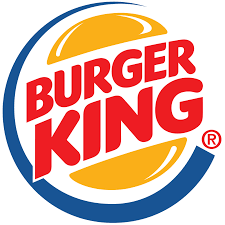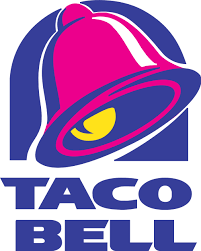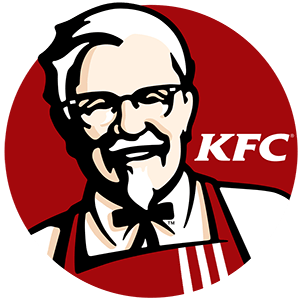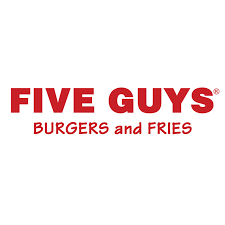Burger King Franchise in 2025: Costs, Fee & FDD
Explore the Burger King Franchise Opportunity! Discover the costs, support, and benefits of owning a Burger King franchise. With over 18,000 locations worldwide, robust franchisee support, and iconic menu items, learn why Burger King could be the right investment for you.
Table of Contents:
Burger King, a cornerstone in the fast-food industry, was founded in 1954 by James McLamore and David Edgerton. It began in Miami, Florida, and has grown to become one of the largest and most recognized quick service restaurant chains globally. Known for its flame-grilled burgers and pioneering drive-thru service, Burger King has carved out a significant niche in the competitive fast-food market. Its iconic Whopper sandwich, introduced in 1957, became a defining product and helped solidify the brand’s reputation for quality and innovation in the fast-food industry.
Burger King’s menu revolves around its flame-grilled burgers, with the Whopper being its flagship item. In addition to burgers, the menu includes chicken sandwiches, fries, salads, breakfast items, and beverages. Over the years, Burger King has expanded its offerings to cater to diverse tastes, including vegetarian and healthier options like the Impossible Whopper, which targets the growing market of health-conscious and environmentally aware consumers. The core customer base primarily consists of families, young adults, and anyone looking for a quick, satisfying meal on the go.
As of the latest data, Burger King operates over 18,000 locations in more than 100 countries, making it one of the largest fast-food chains in the world. This extensive presence allows Burger King to serve millions of customers daily, demonstrating its vast reach and influence in the fast-food sector. The brand’s significant footprint across various markets underscores its adaptability and appeal to a broad audience, from the Americas to Europe, Asia, and beyond.
Burger King system provides robust support for its franchisees, ensuring they have the tools and knowledge needed to succeed. This includes comprehensive training programs covering operations, marketing, and customer service, both in-class and hands-on training at an operational Burger King location. Additionally, franchisees benefit from ongoing support, such as site selection assistance, marketing campaigns, and supply chain management. This support system is designed to help franchisees thrive, maintain brand standards, and deliver consistent customer experiences. The strong franchisee network and support infrastructure highlight Burger King’s commitment to mutual success and operational excellence.

Burger King Franchise Insights
- Burger King serves approximately 11 million customers daily across its global network, showcasing its widespread popularity and strong customer base.
- The Whopper, introduced in 1957, remains a cornerstone of Burger King’s menu, with billions sold worldwide, highlighting the enduring appeal of its flagship product.
- Burger King’s parent company, Restaurant Brands International, is the fifth-largest fast-food operator in the world, with a market capitalization of over $30 billion, providing strong corporate backing.
- The company has a significant international presence, with over 60% of its restaurants located outside the United States, demonstrating its global reach and adaptability.
Burger King Franchise Key indicators
Growth YOY (%)
-5%
vs industry 4%
Total U.S. Franchised Units
Over 6,600
3-Year Failure Rate
9%
vs industry 11%
How much does it cost to open a Burger King franchise?
Understanding the potential investment size and capital requirements is crucial when considering opening a Burger King franchise. These financial commitments, including initial franchise fees, equipment costs, and ongoing operational expenses, impact the feasibility and profitability of the venture. Thoroughly evaluating these factors ensures that potential franchisees are prepared for the financial responsibilities and can make informed decisions about their ability to sustain and grow the business, ultimately contributing to long-term success.
Min & Max Investment
Opening a Burger King franchise involves several key costs, which are outlined in Item 7 of the Franchise Disclosure Document (FDD). You can see a breakdown of the costs to open a Burger King below from the most recent Item 7 below:
| Type of Expenditure | Minimum Investment | Maximum Investment |
|---|---|---|
| Franchise Fee | $50,000 | $50,000 |
| Training and Travel and Living Expenses | $7,500 | $25,000 |
| Real Property / Occupancy Charge | $300,000 | $1,500,000 |
| Civil & Architectural Drawings / Professional Fees | $40,000 | $100,000 |
| Zoning Expenses | $5,000 | $25,000 |
| Improvements / Construction | $1,000,000 | $1,800,000 |
| Landscaping | $25,000 | $60,000 |
| Equipment | $250,600 | $304,600 |
| Décor Package | $45,000 | $95,000 |
| Signage & Drive Thru | $110,000 | $186,000 |
| Pre-Opening Wages | $67,100 | $72,500 |
| Opening Inventory | $6,400 | $12,800 |
| Cash, Inventory Control and Order Taking System | $35,000 | $50,000 |
| Insurance | $14,000 | $25,000 |
| Working Capital / Additional Funds | $45,000 | $90,000 |
| Business Licenses, Utility Deposits, Lease Deposits and Payments | $10,000 | $30,000 |
| 2-Story Interior Playground | $0 | $245,000 |
| Total | $2,010,600 | $4,670,900 |
Item 7 in the Franchise Disclosure Document (FDD) is the “Estimated Initial Investment” section. It outlines the total costs a franchisee can expect to incur when starting a franchise, including the initial franchise fee, equipment, inventory, real estate, and other startup expenses. This section is crucial because it provides potential franchisees with a detailed understanding of the financial commitment required, helping them assess affordability and plan their investment strategy effectively.
Required Capital
To open a Burger King franchise, potential franchisees should be prepared for a significant financial commitment. Here are the key financial requirements based on the latest available information:
- Initial Capital Investment The total investment to open a Burger King franchise typically exceeds $1m and can go much higher if land is purchased as well. This estimate includes construction, equipment, initial inventory, and other startup costs. Franchisees should have at least 20% of the total investment in the form of equity (cash) if they are able to obtain financing.
- Liquid Assets Franchisees are generally required to have at least $500,000 in liquid assets. This ensures they have the necessary cash on hand to cover initial costs and sustain operations during the initial phase.
- Net Worth A minimum net worth of $1.5 million is often required. This demonstrates the franchisee’s overall financial stability and ability to support the business long-term.
These figures are estimates and can vary depending on the location, size, and specific circumstances of the franchise. It’s essential for potential franchisees to conduct thorough due diligence and consult with Burger King’s franchising team for precise requirements and additional financial considerations.
How much does a Burger King franchise owner make?
Calculating the salary of a Burger King franchise owner involves analyzing gross sales to determine total revenue, assessing operational efficiency to understand profit margins, and accounting for franchisor fees and additional expenses such as rent, utilities, and payroll. Effective management of these factors can significantly impact the profitability and financial success of a Burger King franchise owner. This comprehensive financial analysis helps estimate net profits, from which the owner’s salary can be derived. A clear understanding of these factors ensures accurate salary projections and financial planning for sustainable business operations.
Burger King Revenue & Gross Sales
In 2023, Burger King franchises achieved a median gross sales of $1,564,000. This strong financial performance underscores the brand’s robust consumer demand and potential for lucrative returns for franchisees.
Which key factors impact the average revenue performance of Burger King franchisees?
The growth in U.S. franchisee median gross sales revenue for Burger King from 2023 to 2024 can likely be attributed to several key factors:
- Menu Innovation: Burger King has continually updated its menu with new and appealing products, such as the Impossible Whopper and various limited-time offerings, which attract both new and returning customers.
- Digital and Delivery Expansion: The significant growth in digital ordering and delivery services has expanded Burger King’s reach. Investments in mobile app enhancements and partnerships with delivery platforms like Uber Eats and DoorDash have made it easier for customers to order and enjoy their meals.
- Marketing Campaigns: Effective and targeted marketing campaigns, including the use of social media and promotions, have increased brand visibility and customer engagement. Campaigns that highlight value deals and meal bundles often drive higher traffic to the stores.
- Operational Improvements: Streamlined operations and investments in technology, such as automated ordering kiosks and kitchen efficiency systems, have improved service speed and overall customer satisfaction, encouraging repeat business.
- Economic Recovery: As the U.S. economy recovers from pandemic-related disruptions, consumer spending on dining out has increased. This broader economic upturn has positively impacted the fast-food industry, including Burger King franchises.
These factors combined have likely driven the growth in median gross sales revenue for Burger King franchisees, reflecting the brand’s adaptability and commitment to meeting consumer needs.
Burger King Franchise Operational Costs
Opening a Burger King franchise involves several primary ongoing operational costs that are crucial to consider for effective financial planning. Here are the key costs you should be aware of:
- Food and Beverage Costs The expenses incurred from purchasing raw materials and ingredients needed to prepare the menu items. This includes everything from meat, vegetables, and dairy to beverages and condiments.
- Labor Costs Wages, salaries, and benefits for employees, including hourly workers, managers, and any other staff involved in the daily operations of the restaurant.
- Rent or Mortgage Payments The cost of leasing or owning the property where the restaurant is located. This includes monthly rent or mortgage payments, as well as property taxes and insurance.
- Utilities Expenses for electricity, water, gas, internet, and other utilities necessary for running the restaurant.
- Maintenance and Repairs Costs associated with the upkeep of the building, kitchen equipment, and other fixtures. This includes routine maintenance as well as unexpected repairs.
- Supplies and Inventory This includes everything from kitchen supplies, cleaning products, office supplies, and uniforms to inventory management costs.
- Insurance Costs for various insurance policies, including property insurance, liability insurance, and worker’s compensation insurance.
- Technology and Equipment Expenses for maintaining and upgrading point-of-sale systems, kitchen equipment, and any other technological infrastructure.
- Miscellaneous Costs Other operational expenses such as licenses, permits, professional fees (e.g., legal and accounting services), and any other costs that arise from running the business.
Careful planning and budgeting for these operational costs are crucial for the financial health and success of your Burger King franchise.
Burger King Franchise Fees
Owning a Burger King franchise is different from owning an independent, non-franchised business. All franchises tend to charge ongoing fees that franchisees are required to pay to operate. Burger King requires their franchisees to pay the below fees:
- Royalty Fee This is a monthly fee paid to Burger King, typically calculated as a percentage of gross sales. his fee is usually 4.5% of the restaurant’s monthly gross sales.
- Advertising and Marketing Fees Franchisees are required to contribute 4% of gross sales to the advertising fund.
- Additional Fees There are additional fees for training programs, technology, and other items provided by Burger King that may be applied.
These ongoing fees are essential to consider when planning the financial aspects of owning and operating a Burger King franchise. They cover the costs of brand support, advertising, and ongoing operational assistance provided by Burger King.
Burger King Franchise Earnings
The earnings of a Burger King franchise owner can vary significantly based on a variety of factors including location, sales volume, operational efficiency, and cost management. However, on average, Burger King franchise owners can earn a significant income.
Burger King franchisees have a median gross sales of $1,564,000. Based off of the median gross sales, we can estimate a Burger King franchisee makes $234,000 in estimated earnings (EBITDA) per year, assuming that the franchisee is an owner-operator in the location. Note that this assumes an operating margin of 15% and that the owner actively managing the location. This means that you can consider the salary of a Burger King franchise owner to be roughly $234,000 before interest, taxes, depreciation, and amortization (EBITDA).
If the franchisee is semi-absentee, then earnings will be significantly lower based off of the costs of having a hired manager.
How to Open a Burger King Franchise
Becoming a Burger King franchisee involves a comprehensive process designed to ensure both the franchisor and franchisee are set up for success. Here’s a step-by-step guide from initial inquiry to the start of operations:
1. Initial Inquiry
a. Contact Burger King: You or your franchise specialist submits an initial inquiry basic information about your interest and background.
b. Receive Information Packet: After your inquiry, you’ll receive an information packet detailing the franchise opportunity, requirements, and next steps.
2. Preliminary Application
a. Complete the Application: Fill out a preliminary application form with details about your financial background, experience, and interest in the franchise.
b. Initial Screening: Burger King’s franchising team will review your application to ensure you meet the basic financial and experience requirements.
3. Franchise Disclosure Document (FDD)
a. Receive the FDD: If you pass the initial screening, you will receive the Franchise Disclosure Document, which provides in-depth information about the franchise, including costs, obligations, and financial performance.
b. Review Period: Take at least 14 days to review the FDD, as required by law. It’s advisable to consult with a lawyer and financial advisor during this period.
4. Initial Interview
a. Attend an Interview: Participate in an interview with Burger King’s franchising team to discuss your background, motivations, and plans for the franchise.
b. Business Plan Presentation: Prepare and present a business plan outlining your vision, market analysis, and financial projections for the franchise.
5. Approval and Site Selection
a. Franchise Approval: If approved, you will receive a formal approval letter from Burger King.
b. Site Selection: Work with Burger King’s real estate team to select an appropriate location for your restaurant. This involves market analysis, site visits, and lease negotiations.
6. Franchise Agreement
a. Sign the Agreement: Once the site is approved, you will sign the franchise agreement, officially granting you the rights to operate a Burger King franchise.
b. Initial Franchise Fee: Pay the initial franchise fee, which can range from $50,000 to $55,000.
7. Training Program
a. Complete Training: Attend and complete Burger King’s comprehensive training program, which includes in-class and hands-on training at an operational Burger King location. Training covers operations, marketing, customer service, and management.
8. Construction and Setup
a. Restaurant Build-Out: Oversee the construction and setup of your restaurant. This includes designing the interior, installing equipment, and ensuring compliance with Burger King’s brand standards.
b. Hire Staff: Recruit and train your staff to prepare them for the opening.
9. Pre-Opening Activities
a. Marketing and Promotions: Implement pre-opening marketing and promotional activities to build awareness and excitement in the local community.
b. Final Inspections: Conduct final inspections with Burger King’s support team to ensure everything is in place for a successful launch.
10. Grand Opening
a. Soft Opening: Conduct a soft opening to test operations and make any necessary adjustments.
b. Grand Opening: Host the grand opening of your Burger King franchise, officially starting operations and welcoming customers.
Throughout this process, you will receive ongoing support from Burger King’s franchising team to help ensure your restaurant’s successful launch and operation.
Pros & Cons
Pros
Brand Recognition: Established Brand: Burger King is a globally recognized brand with a strong reputation, which can attract customers and drive sales from day one.
Proven Business Model: Successful Track Record: With decades of experience, Burger King has a proven and profitable business model that has been refined over time.
Comprehensive Training and Support: Extensive Training Programs: Franchisees receive thorough training in operations, marketing, and management, ensuring they are well-prepared to run their business. Also continuous support from the franchisor includes assistance with marketing, supply chain management, and operational challenges.
Marketing Power via National Advertising: Burger King’s national advertising campaigns and marketing strategies are powerful, increasing brand visibility and customer engagement.
Menu Innovation with a Diverse Menu: Burger King’s ability to innovate and expand its menu keeps the brand relevant and appealing to a broad customer base.
Cons
High Initial Investment with Significant Capital Requirements: The initial investment can range from $2 million to $4.7 million, which may be a barrier for some potential franchisees.
Competition in Highly Competitive Market: The fast-food industry is intensely competitive, with numerous established brands vying for market share, which can affect sales and growth potential.
Operational Demands Labor-Intensive: Running a Burger King franchise requires managing a sizable workforce, which involves recruitment, training, and dealing with turnover.
Franchise Control with Limited Autonomy: As a franchisee, you must adhere to Burger King’s established systems and guidelines, which may limit your ability to make independent business decisions.







